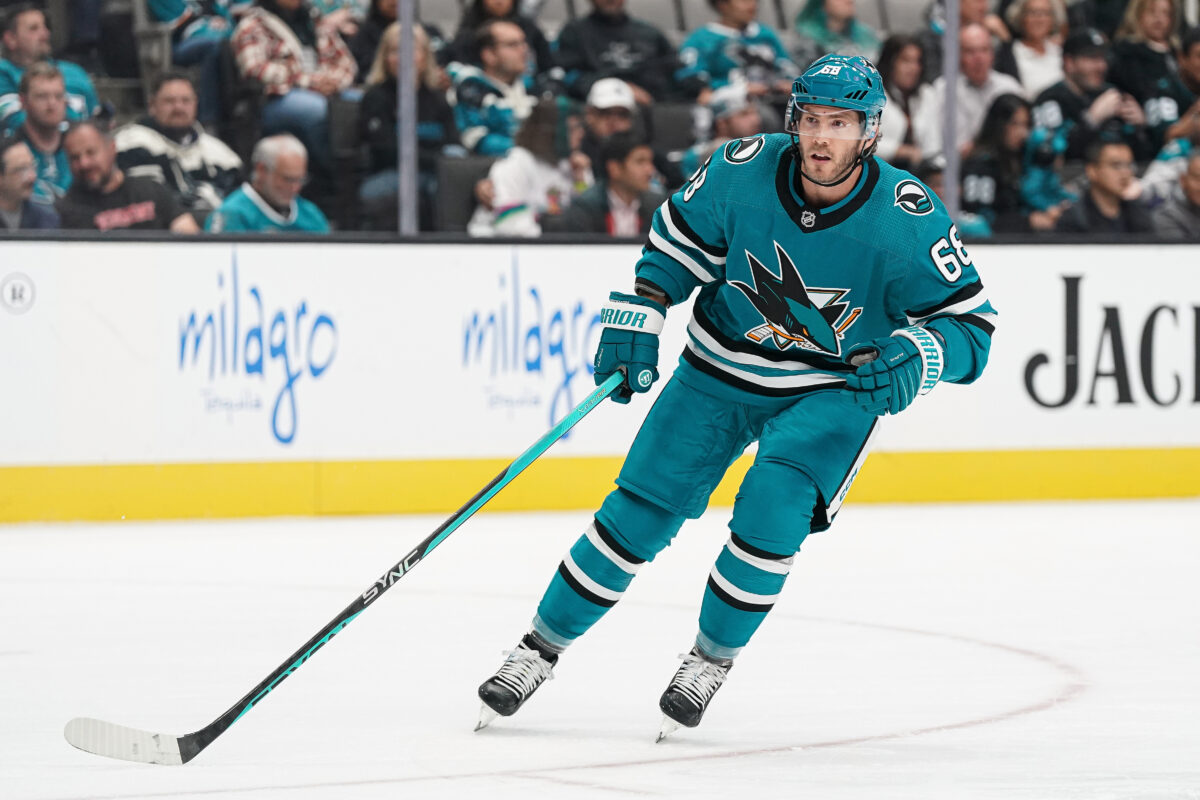Following an 18-game stretch in which they averaged more than a point per game, the San Jose Sharks have taken a step back with three straight losses. But the struggles are the logical next step in a streaky San Jose season. A brutal 11-game start, 18 games of adequate play, and now three defeats in a row. After the dust has settled, the Sharks have 21 points through 32 games and narrowly sit in last place in the league — about where they were expected to be. They took an unusual path to get to that spot, but they reached it eventually, and a closer examination of their journey shows that such a stabilization was always likely, even during their greatest successes.
Sharks Continue to Get Outshot
Led by some savvy veteran play, the Sharks showed significant improvement during the aforementioned 18 games, but the underlying statistics demonstrate a fair amount of luck and a style of play that doesn’t lead to winning over the course of a full season.

The Sharks were outshot in 15 of the 18 games, despite winning nine of them, including eight wins while being outshot. In total, they allowed 651 shots on goal while taking just 476. They also conceded 58 power play opportunities and only generated 45 of their own. Combine that with Corsi for and Fenwick for rates that sat below 44 percent during that time, and you’re looking at a team that probably should’ve had a record worse than the 9-7-2 mark they posted.
Seven of the nine wins were by one goal, revealing another unsustainable element of their hot streak. Too often, the Sharks took an early lead, then held on for dear life at the end. They would generate solid offensive production for a stretch, but completely lose that as the game went on and have no choice but to play a conservative style. It wasn’t even a strategy, necessarily. Their more skilled opponents simply turned up the pressure as they tried to tie the game, and all San Jose could do was try and ride it out, unable to counterattack, and hope that Kaapo Kahkonen and Mackenzie Blackwood could make enough saves to win.
Even in most of their wins, the Sharks were outclassed offensively. They’ve also been outshot in each of the last three games, and they lost all three. In hockey, these sorts of things tend to even out over time.
Sharks Can’t Sneak Up on Teams Anymore
A number of Sharks wins, particularly the first few, relied at least in part on the element of surprise. The 18-game stretch was immediately preceded by two consecutive losses in which San Jose allowed 10 goals. The league-wide expectation of the Sharks couldn’t have possibly been lower. Thanks to that perception, they were able to regroup, come together as a team, and shock the NHL with their first victories of the season.
Related: San Jose Sharks Being Rewarded for Patience with David Quinn
But once you’ve won nine games, that isn’t really an option anymore. Yes, they might still be the worst team in the league, but they’re not so bad that teams will consistently take them lightly. The feeling is no longer that a game against San Jose will be an easy win, but rather that the Sharks are a team you could easily lose to if you don’t pay attention. Their last two opponents — the Colorado Avalanche and the Los Angeles Kings — got the message, and both won in blowout fashion.
Gone is San Jose’s ability to catch teams off guard, at least for now. If they want to win games, they’ll simply have to raise their level of play.
Sharks’ Season Establishing a Pattern
The Sharks still have 50 games remaining on their 2023-24 schedule. They’ll have good stretches and bad ones — likely more of the latter than the former. But with the halfway point of the season approaching, we have a pretty good sense of who they are as a team. They’re overmatched but fight hard, and they might be at their best when no one expects them to be. The season can still have plenty of twists and turns, but their average performance is pretty clear.
